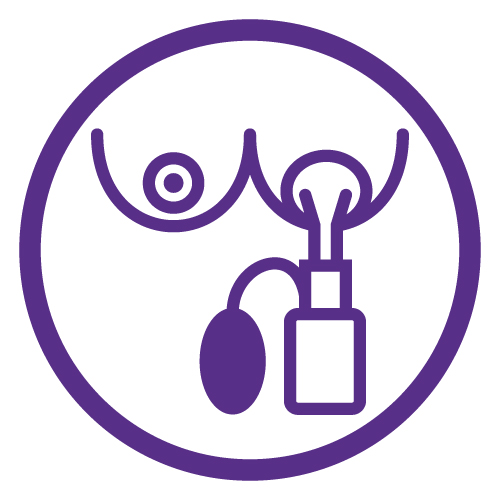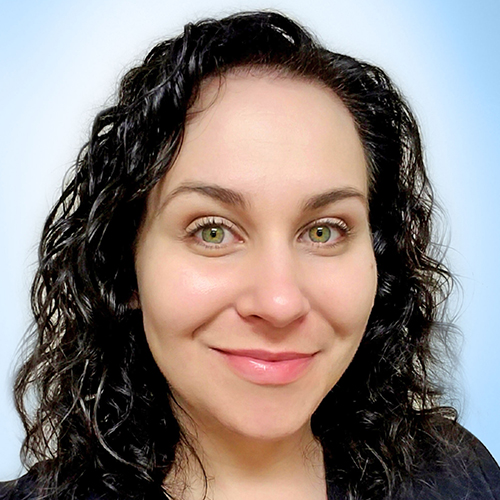 Lactation & Breastfeeding Online Course(s) & Continuing Education
Lactation & Breastfeeding Online Course(s) & Continuing Education
Access the latest clinical skills and research for Lactation & Breastfeeding for professional training. These Lactation & Breastfeeding online courses provide practice-changing skills and valuable perspectives from leading global experts. This Lactation & Breastfeeding education has been accredited for a variety of CEUs / CERPs and can be accessed on-demand, at your own pace.


Philip O. Anderson, Pharm.D., FCSHP, FASHP is a Health Sciences Clinical Professor of Pharmacy at the UCSD Skaggs School of Pharmacy and Pharmaceutical Sciences where he heads the course on drug information.
Dr. Anderson has lectured and published extensively on drug use during breastfeeding including in professional journals and textbooks, including original research on drug excretion into breastmilk. Dr. Anderson founded the LactMed® database, which is part of the National Library of Medicine’s Bookshelf. He continues to write LactMed® records and to expand the database. He has authored the medication appendix to the popular handbook, The Nursing Mothers' Companion. Dr. Anderson is the Pharmacology Editor of the professional journal, Breastfeeding Medicine, and writes a monthly column on medication use during breastfeeding for the journal. He has also been a consultant to the US Food and Drug Administration on the topic of drug labeling with respect to use during lactation.
Many mothers do not breastfeed their infants, discontinue breastfeeding or fail to take medications while they are breastfeeding. The principles of drug passage into breast milk are well established, although not well known by many health professionals. This presentation will review the principles of drug passage into breast milk, medications and factors that can cause a risk for adverse reactions in breastfed infants and discuss how to choose the most appropriate medications for mothers who are breastfeeding their infants.

View Details / Enroll
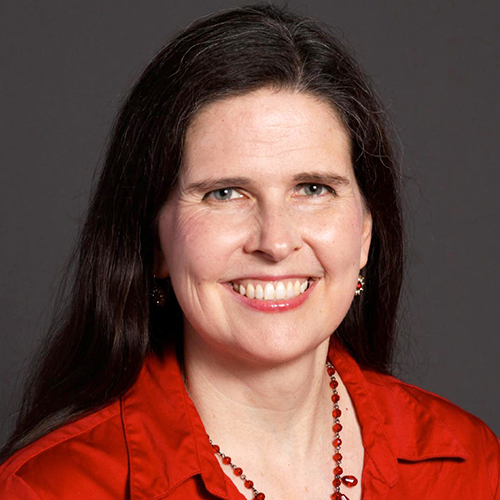
Medications and Mothers' Minds: Psychopharmacology for Lactating Mothers

Marie Zahorick, MS, APRN, FNP-C, IBCLC became a La Leche League Leader in 1999 and an IBCLC in 2005. After several years of working as a hospital-based bilingual Spanish-speaking IBCLC, she attended nursing school and eventually became a board-certified Family Nurse Practitioner. In the meantime, she continued working as a hospital-based lactation consultant doing inpatient, outpatient, and Level III NICU lactation. She did not get much sleep.
After graduate school, Marie was recruited to work as a nurse practitioner in psychiatry. She was fellowship-trained to manage patients in the acute inpatient setting, partial hospitalization, outpatient office, and OB patients in the general hospital setting.
She specializes in women’s psychiatry, especially medical management of women who are pregnant or lactating. Her expertise also includes general psychopharmacology. She is experienced at diagnosing and treating mental conditions such as bipolar disorder, perinatal/postpartum mood and anxiety disorders, postpartum psychosis, obsessive-compulsive disorder, premenstrual and perimenopausal mood disorders, and personality disorders.
She lives in the Chicago area with her husband and three adult children in the transient stage of life. Her children all breastfed for at least two years but now just make faces when confronted with that fact.
If you have worked with mothers for more than a few weeks, you have encountered a mother with mental illness. You may not have recognized the symptoms while talking with your patient. Or, you may wonder if a certain psychiatric medication is “safe” during lactation.
Perinatal mood and anxiety disorders (PMAD) include a spectrum of common mental health disorders: depression, panic disorder, obsessive-compulsive disorder, posttraumatic stress disorder, bipolar disorder, and postpartum psychosis.
These disorders often ruin enjoyment of the postpartum experience and bonding with the baby. Perinatal bipolar disorder and postpartum psychosis are particularly dangerous due to severe depression and reckless or bizarre behavior that can endanger mother and baby.
Medicating the lactating mother is a careful balancing act between the health and safety of the mother and the health and safety of the baby. But failing to medicate a mother with PMAD can lead to misery, dysfunction, poor infant outcomes and in the worst situations, injury and death.
This presentation will give an overview of the different classes of antidepressants, antianxiety medications, antipsychotics, and mood stabilizers commonly used in breastfeeding mothers. Electroconvulsive therapy and transcranial magnetic stimulation will also be discussed as non-pharmacologic treatments.

View Details / Enroll
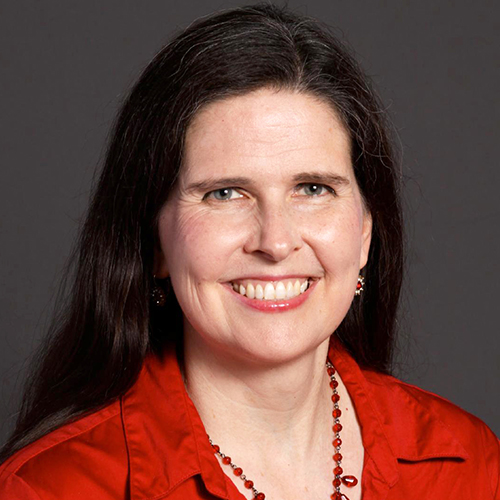
View Details / Enroll
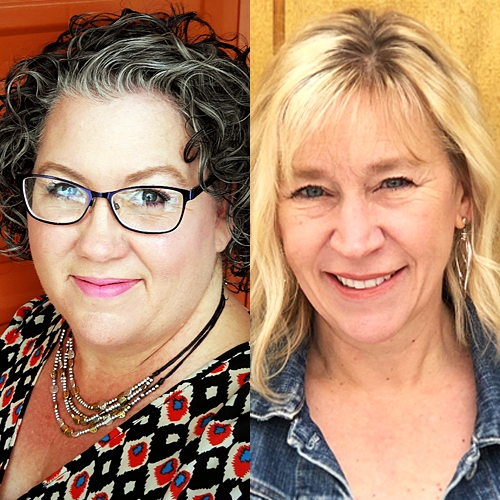

Amy Peterson, an International Board Certified Lactation Consultant, & Mindy Harmer, a Certified Lactation Counselor and Licensed Speech-Language Pathologist, are recognized breast and bottle-feeding speakers. Amy has worked in the field of lactation for the past 22 years focusing the most challenging cases. Mindy is the owner of a Speech-Language Occupational Therapy clinic that specializes in pediatrics. They have a passion for sharing their expertise and strive to give practical information for breastfeeding helpers and parents. For the past 13 years they have studied bottle features and how they impact a baby’s suck. Amy and Mindy’s early collaboration resulted in the publication of Balancing Breast and Bottle: Reaching Your Breastfeeding Goals, revised in 2019. They also have a series of tear-off sheets designed to assist breastfeeding helpers with bottle and pacifier use.
All too often, the breastfeeding helper finds herself in the uncharted territory of fielding artificial nipple questions and helping mothers select the best bottles for their breastfed babies. By broadening your artificial nipple knowledge and learning about bottle features you can minimize the negative impact of bottle use. Once you become familiar with bottle features and their impact on a baby’s suck, you can also use this knowledge to improve latching and sucking skills.
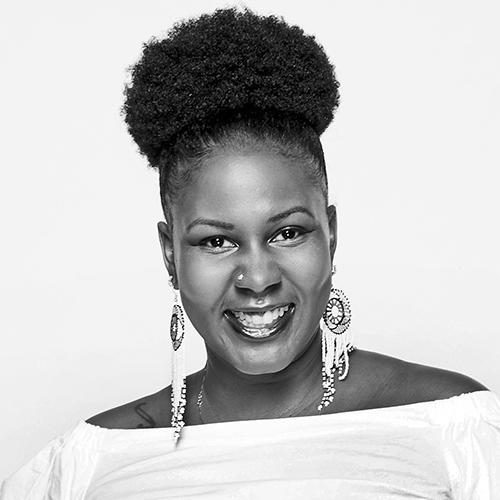
Meet Them Where They Are: Applying a Multidisciplinary, Equitable and Sustainable Approach to Breastfeeding and Lactation Practice & Promotion

TaNefer is an IBCLC, Maternal Health Strategist and Healer with over 15 years of experience in supporting families through birth, breastfeeding and postpartum. She has a background in psychology and Health education with an emphasis in community health and early career experience in counseling, social services and family advocacy. She brings a wealth of knowledge and experience as she helps her clients identify their challenges and lovingly guides them through a plan to overcome them. She has the ability to work with diverse populations and tailors support to fit the needs of each unique person or group. She educates parents, families and professionals on lactation, breastfeeding and maternal healing. She is also a researcher, serving as a Community Advisory Board member to the UCSF Preterm birth initiative and is also the Community Researcher and Relations consultant to the SACRED Birth Study. She has designed, implemented and evaluated programs in maternal equity and lactation and is the creator of the "Teach me how to breastfeed" song and viral music video. TaNefer Lumukanda Camara is also a Co-founder B.L.A.C.K Course.
It’s been a decade since the Surgeon General’s call to action to support breastfeeding. While great strides have been made to improve breastfeeding rates in the US, diverging societal conditions, disparate birth outcomes and changing family dynamics have necessitated adjustment and adaptation of more inclusive and multifaceted approaches to lactation support. With up to 34% of birthing people having experienced a traumatic birth, one study has shown how the effect on breastfeeding can go in either direction. If we factor in housing instability, mental health and race/immigration status we see greater disparities and/or differing needs according to the target population. However, the paradox is that these issues are not mutually exclusive, therefore a one size fits all approach is not sufficient. The COVID-19 Pandemic shed light on pre-existing gaps and disparities in this field and forced us to reimagine what breastfeeding promotion, protection and support should and can be. Implementing a multi-disciplinary plan to approach breastfeeding and lactation should be the trend moving forward. In this presentation you will learn how to:
Identify disciplines that can collaborate with lactation specialists to support breastfeeding promotion.
Discuss challenges in supporting populations with multiple needs and high risk.
Strategize a plan for reaching marginalized communities and populations at high risk and high need for lactation support.
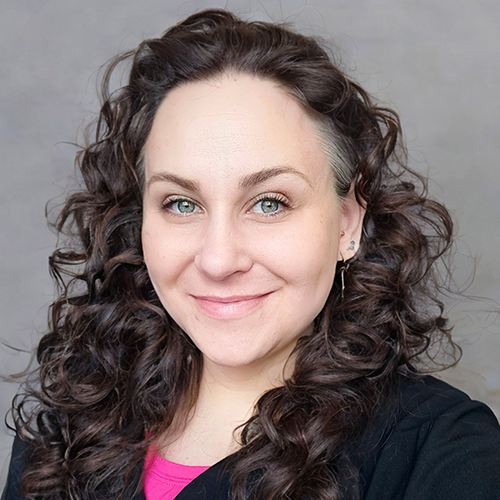

Megan Dunn is a board certified Lactation Consultant and Health Educator who views infant feeding from an anthropological perspective and through a sociological lens. Her experiences have run the gamut as a volunteer, peer-to-peer counselor, clinical IBCLC, and as an educator.
Currently she is the Breastfeeding Program Coordinator for a local WIC agency where she is coordinating a pilot program to equitably expand peer services. She is privileged to be a part of the excellent team at Legacy Health as a perinatal Educator. She also provides community lactation support as a home-visiting provider. Her goals are to support biological feeding norms and to offer practical and empowering solutions for dyads.
Professionally, her special interests include the fascinating world of our microbiome, empowering parents through Participant Centered and motivational approaches, and creating successful feeding solutions for complex cases. She is eager to collaborate on projects which focus on improving public policy and accessibility to culturally aware and trauma informed care for all perinatal families.
When she’s not pondering and working on all things human milk, Megan enjoys cooking, hanging out with her teenagers, going on nature walks, volunteering, and spinning tunes as a community radio host and DJ.
The billions of unicellular organisms which form a symbiotic relationship with our bodies provide essential functions which regulate, modulate, and maintain homeostasis. The microbiome has an essential role in prompting a proper immune response, maintaining adequate digestion and metabolic function, managing inflammatory status, supporting mental health, and many more functions which are required for good health. Dysbiotic conditions during the perinatal period are common and impact the infant feeding relationship.
In this presentation, participants will learn about the functions of the microbiome as it relates to lactation and infant health as well as the consequences of dysbiosis and its impact on lactation/infant feeding.
Additionally, participants will learn how to address dysbiotic conditions within their profession’s scope. This presentation provides clinically applicable information and recommendations that participants can apply when providing lactation education and developing care plans.

Milk Composition and Maternal Nutrition: Understanding the Impact and Outcomes

Rosa Sorribas is an IBCLC in private practice in Barcelona since 2008. She is a Computer Engineer working on Internet and databases since 1986. In 2002, after her first daughter was born, she and her husband created CrianzaNatural.com, a Spanish portal and forum with information for an attachment parenting style of life. Since then, she's been involved in breastfeeding groups, such as La Leche League and Areola, which she still collaborates with. She offers breastfeeding and babywearing education in Spain, Portugal, Poland, and online. She's been working as doula in home and hospital births. Her website has been the source of dozens of support groups, many breastfeeding conselours and IBCLCs, and has helped hundreds of thousands of families around the world to get their maternity goals. For the last few years she's been very focused in nutrition after a cancer treatment left some issues on her health. She is now running a weekly podcast and video interview to relevant people addressing topics from conception to teens. In February she will launch a training course to become IBCLC, with the help of several new and experienced IBCLCs that she's been mentoring, in a site called ecrianza.com. She lives near the beach of Castelldefels with her two daughters who were homeschooled for 6 years, her lovely husband and her dog Timi.
As opposed to being considered the optimal way to feed a baby, breastfeeding should instead be considered the norm. Human milk is the most appropriate food for all babies, even if the mother is experiencing health issues or challenging life conditions. Human milk, despite maternal conditions, is the best source of food for children. Lifestyle, maternal diet, environmental exposures, and stress, among other factors, can impact health outcomes. This leads to the question of whether these factors can also affect human milk composition. Can babies become nutritionally deficient from the composition of their mother’s milk? What is deficiency? How are those thresholds calculated? This presentation will shed light on this subject, which is undergoing a tremendous amount of new research.

View Details / Enroll
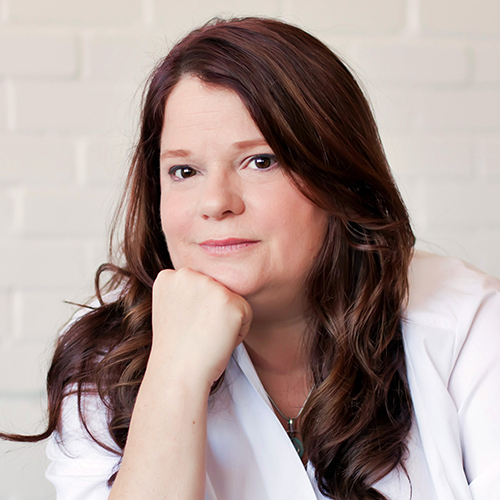
Milk Sharing and Milk Banking: Building Knowledge for Better Outcomes

Barbara D. Robertson, IBCLC, has been involved in education for over 34 years. She received a Bachelor’s degree in Elementary Education in 1988 and her Master’s in Education in 1995. Barbara left teaching elementary students in 1995 to raise her two children. Barbara is now the Director of The Breastfeeding Center of Ann Arbor and of the brand new business LactaLearning.
The Breastfeeding Center of Ann Arbor will still continue to serve breast/chestfeeding families and now LactaLearning will be dedicated to all of Barbara’s professional lactation trainings. Barbara has developed two 95 hour professional lactation training, a group training and a completely self study training with Nancy Mohrbacher. Barbara’s idea of creating professional book groups has exploded with her hosting Making More Milk with Lisa Marasco, Supporting Sucking Skills with Cathy Watson Genna, Breastfeeding Answers, 2nd Edition with Nancy Mohrbacher, and new for the fall, Safe Infant Sleep with Dr. James McKenna. Barbara will be hosting a one day online conference in the fall with Lisa Marasco and Cathy Watson Genna using all of her tech savvy skills to make this a one of a kind experience. Barbara is also a speaker for hire on a wide variety of topics including Motivational Interviewing. Barbara volunteered for the United States Lactation Consultation Association as the Director of Professional Development for 4.5 years.
She just retired as Associate Editor for Clinical Lactation, a journal she helped create for USLCA. Barbara has free podcasts, a blog, and Youtube videos which can all be found on her websites lactalearning.com and bfcaa.com. She has written many articles as well. She loves working with parents and babies, helping them with breast/chestfeeding problems in whatever way she can.
Topic: Breastfeeding: Baby’s First Milestone - [View Abstract]
Topic: Clinical Assessment and Management of Low Milk Production - [View Abstract]
Topic: Deconstructing Online Messaging: Ethical Considerations - [View Abstract]
Topic: Milk Sharing and Milk Banking: Building Knowledge for Better Outcomes - [View Abstract]
Topic: The Baby's Not Gaining Weight! Now What? - [View Abstract]
Topic: The Great Nipple Shield Debate - [View Abstract]
Humans have been sharing their breastmilk for the benefit of other babies for thousands of years. In this presentation, we will be looking at how a baby might have access to human milk if their parent cannot provide it themselves. The history and current practices of milk banking, both for profit and non-profit, will be covered as well as milk sharing.
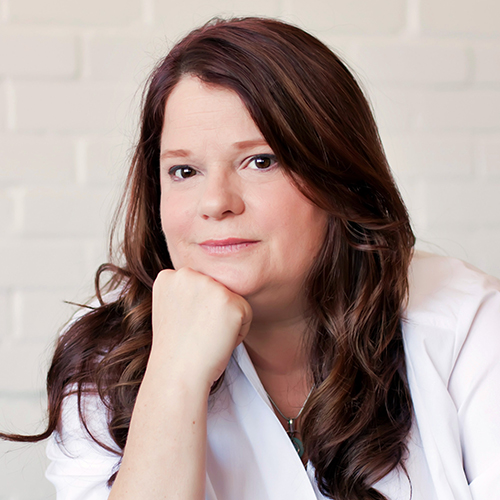
View Details / Enroll
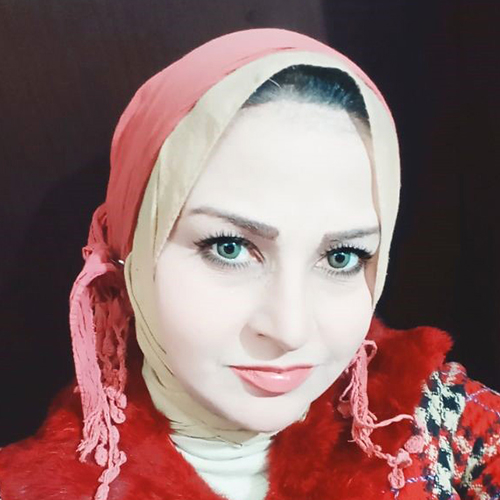
Misconceptions and Current Research on Vegan Diets and Breastfeeding

Pediatrician, neonatology & Clinical Nutrition physician with 19 years’ experience, and IBCLC since 2008. A board member @MILCC. An Associate Alumni, Harvard Medical School & affiliate member @WABA and member @Task force analysis committee@IBLCE.
A volunteer@ILCA (conference committee, equity, study, research and publications and webinar task modules) since 2018 and currently.
A trainer at the Egyptian Board of Pediatrics and a former member committee of the Egyptian Board.
In July 2022, she was nominated for USLCA award winner reward, assigned for excellency in breastfeeding medicine. Among USBC Equity champions 2023.
An “IBCLC & ILCA Award Winner” 2021, award to the most effective lactation consultant worldwide.
In December 2021, she was selected as one of four leaders responsible for the Technical Assistance @ United States Breastfeeding Committee, responsible for training and technical assistance to the breastfeeding network of the state.
She has been selected on 2018 as an expert on the IBLCE® Practice Analysis Task Force. She was nominated as a fellow of ILCA the year 2021.
Her current book “The Ultimate Breastfeeding Study Guide” was released in January 2021, a reference book for healthcare professionals interested in Breastfeeding medicine.
An international speaker at organizations supporting breastfeeding medicine; TalkTools, ABM, ILCA, iLactation, USLCA, Breastfeeding conferences, Australian Live Events and Appalachian Breastfeeding Network webinar series.
The nutritional composition of breast milk is impacted by maternal diet. With vegan breastfeeding mothers, a common concern is that their dietary restrictions could affect their milk supply or limit the milk constituents. Research however shows that vegan mothers are capable of producing nutritionally valuable milk for their infants, as long as the appropriate supplementation of the mother's nutritional requirements is provided. This presentation will review existing knowledge on the variability of specific nutrients in breastmilk of mothers adhering to a plant-based diet and how to create a plan that takes into account both the mother's and infant's nutritional requirements.
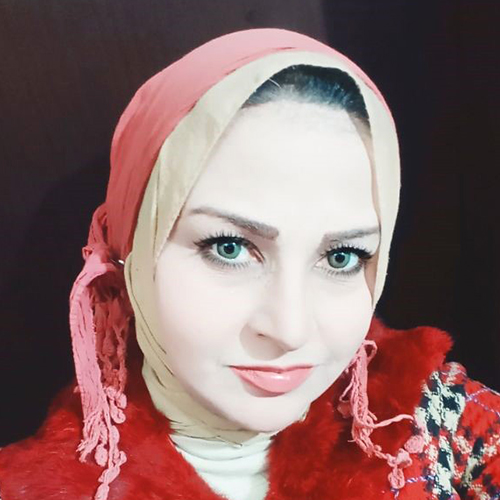
View Details / Enroll

More Support in a Coffee Shop Than in the Hospital: Experiences of Breastfeeding Children With Medical Complexity

Lyndsey is an experienced paediatric nurse, children’s public health nurse, International Board Certified Lactation Consultant, Holistic Sleep Coach, researcher and responsive parenting advocate. She has worked in hospitals, clinics, the community and within clients’ homes for 20 years, serving within the UK NHS, in private practice and voluntarily.
The co-founder and clinical director of the Holistic Sleep Coaching program, Lyndsey regularly teaches internationally, as well as providing mentorship for newer sleep coaches. She is passionate about responsive feeding, gentle parenting and promoting parental confidence and well-being.
With Professor Amy Brown, she is the co-founder of Thought Rebellion – an education and publishing company seeking to inspire, challenge and equip professionals and writers in the parenting, lactation and perinatal space with an evidence based revolution.
Lyndsey is currently a PhD researcher at Swansea University, exploring the needs and challenges of medically complex breastfed infants and children. In 2019 she set up the Breastfeeding the Brave project to raise awareness of the unique breastfeeding needs of chronically, critically, and terminally ill children in the paediatric setting. The mother of a childhood cancer survivor, she often talks about the impact of chronic serious illness on families, and seeks to support other families living through a serious childhood illness.
Lyndsey is a respected international speaker and teacher, and regularly speaks out against the dominant sleep training culture, as well as advocating for the rights of families to receive high-quality, compassionate and expert support. She is the author of Holistic Sleep Coaching (2018), Let’s talk about your new family’s sleep (2020), Still Awake (2021), Breastfeeding the Brave (2022) and co-author of The Writing Book (2022).
Topic: Breastfeeding Children with Cancer - [View Abstract]
Topic: More Support in a Coffee Shop Than in the Hospital: Experiences of Breastfeeding Children With Medical Complexity - [View Abstract]
Topic: Supporting Families With Sleep While Optimising Attachment and Responsive Feeding - [View Abstract]
Topic: You Can't Sleep With Your Foot On The Gas Pedal: How To Improve Sleep By Tapping Into Calm - [View Abstract]
Breastfeeding may be natural, but it isn’t easy. Initiating and maintaining breastfeeding, and overcoming barriers can be hard for anyone, but breastfeeding a child with illness or medical complexity in the paediatric setting is uniquely challenging and presents different obstacles than those commonly experienced by parents feeding healthy term newborns or preterm neonates.
Current policies, BFHI standards, and training are weighted towards the initiation of breastfeeding or the establishment of effective pumping for a preterm infant. The needs and challenges of children beyond the neonatal period are largely unresearched. My systematic review in 2021 found seven key themes that provided some explanation as to why breastfeeding a child with medical complexity in paediatrics is different and more challenging to achieve.
My qualitative study in 2022 has provided novel insight and new data into the specific challenges encountered by parents of children with acute, chronic, complex and life-threatening illness in the paediatric ward or paediatric intensive care unit and provides tentative explanations and suggestions for how to approach this unique population to optimise their feeding experience.
In this presentation, learners will understand how to view the paediatric population as distinct from the maternity and neonatal population and appreciate some of the unique difficulties that these families face. Learners will also develop understanding of the need to merge clinical and lactation skills in a collaborative approach to care. Finally, new insights and awareness of the importance of expanding current training to meet the needs of this population will be shared.
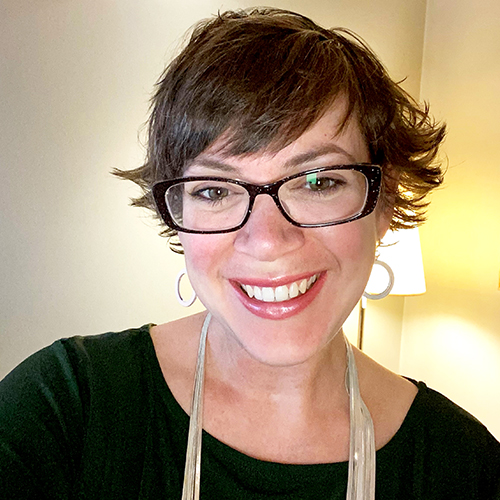
View Details / Enroll

More Than Just the Milk-Making Hormone! The Latest on Prolactin and Its Impact on Pregnancy and Lactation

Dave Grattan is a professor in the Department of Anatomy at the University of Otago, School of Biomedical Sciences. He has published over 180 research articles in the field of Neuroendocrinology, particularly focused on the hormone prolactin. He has also presented over 30 invited lectures at international meetings, and won a number of prizes, including the Triennial Medal of the Physiological Society of New Zealand (2005), the Mortyn Jones Medal of the British Society for Neuroendocrinology (2009) and HNNA Lecturer for the International Congress of Neuroendocrinology (2022). He was Head of the Department of Anatomy from 2011-2014, and Director of the Centre for Neuroendocrinology at the University of Otago from 2018-2023. He has served as the President for the New Zealand Society of Endocrinology (2003-2006) and for Hypothalamic Neuroscience and Neuroendocrinology Australasia (HNNA, 2017-2020). From 2009-2014 he was the Editor-in-Chief of the Journal of Neuroendocrinology, and is currently an Associate Editor at Endocrinology. He chaired the organising committee for the 8th International Congress of Neuroendocrinology in Sydney, Australia, 2014, and from 2018-2022 chaired the FASEB Science Research Conference on Growth hormone/prolactin family in health and disease.
Many changes take place during pregnancy to prepare for the physical and physiological challenges of becoming a mother, including numerous adaptations in the maternal brain. Dynamic fluctuations in key hormones during pregnancy induce these adaptive changes to enable the mother’s physiology to adjust to the new demands of these reproductive states and to provide the optimal environment for the development of her baby. Evidence shows that the “lactogenic hormones” (i.e. the multiple pituitary and placental hormones that act through the prolactin receptor) are critical for many of the adaptive changes that occur during pregnancy. It is well accepted that prolactin is required for lactation, but it is now clear that these hormones have a much wider role, influencing maternal behaviour and the maintenance of lactation infertility. Surprisingly, we have shown that prolactin action in the brain also mediates metabolic changes, including stimulation of food intake, a profound suppression in voluntary physical activity in pregnancy, and there is exciting new data showing a role for prolactin in thermoregulation. Collectively, we believe these observations are consistent with the hypothesis that prolactin (and its placental homologue placental lactogen) plays a key role in coordinating the behavioural and physiological adaptations to pregnancy in the mother, and lactation could be considered simply another in this suite of prolactin-mediated physiological adaptations. These data highlight a much more comprehensive role for prolactin in the process of mammalian reproduction than is typically considered for this “lactation hormone”.

View Details / Enroll






